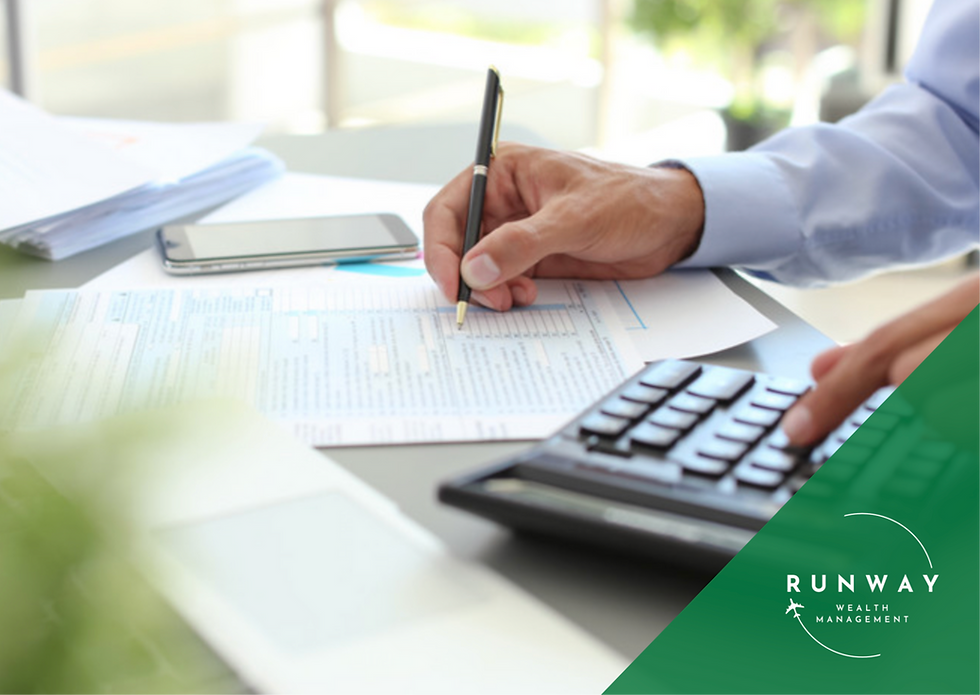Understanding the Deemed Acquisition Rules for Australian Expats
- Mitchell Kelsey

- Jun 6, 2025
- 4 min read

As an Australian Expat navigating the complexities of Australia’s tax law, one important concept that often gets overlooked when returning home is "Deemed Acquisition". If you hold shares or other foreign assets and are planning to return to Australia, understanding this rule can help you plan for potential tax liabilities. In this blog post, we look at the Deemed Acquisition rules for Australian Expats, including when the rules apply, why it matters and what Australians living abroad should know.
What is Deemed Acquisition?
A Deemed Acquisition refers to a situation where, for Australian tax purposes, you're considered to have acquired an asset at a specific time even if you didn’t actually purchase it at that point. This concept is particularly important for Australian Expats moving home and their tax residency status updates from non-resident to resident for tax purposes with the Australian Tax Office (ATO).
When do the Deemed Acquisition Rules Apply?
The Deemed Acquisition rules for Australian Expats are most relevant when you become a Tax Resident of Australia (repatriating Australian Expats).
If you're returning to Australia or becoming a tax resident for the first time, you may be deemed to acquire certain assets at their market value on the date you become a tax resident. This applies only to assets that are not considered "Taxable Australian Property" (TAP) with the ATO, such as share investments, foreign property, or foreign managed funds. For these assets:
You’re deemed to have acquired them at their market value on the day you become a tax resident – often the day you arrive.
Any capital gains or losses accrued before that date are generally not taxed in Australia.
Future capital gains or losses will be based on the deemed acquisition cost base (i.e., market value at the time of tax residency in Australia).
What about when you cease being a Tax Resident (Outbound Australian Expats)?
Similarly to the Deemed Acquisition rules, there are rules that cover a situation when you move overseas and cease to be an Australian tax resident. This is referred to as the Deemed Disposal rules for Australian Expats, where you are considered to have disposed of certain assets for tax purposes. However, unlike Deemed Acquisition, the Deemed Disposal rules are optional, where you have two options:
Elect to defer the CGT (Capital Gains Tax) event until the asset is actually sold.
Accept the deemed disposal and pay CGT on unrealised gains as of the date you ceased residency.
Learn more about the Deemed Disposal rules for Australian Expats.
Key Example: Returning to Australia as an Expat
Let’s say you’ve been living in Singapore for five years and built a portfolio of international shares. On returning to Australia and becoming a tax resident again:
The shares are not considered taxable Australian property.
The ATO considers you to have acquired them at their market value on the date you became a resident.
This is your new cost base for CGT purposes with the ATO.
So, if you later sell those shares while a tax resident, you’ll only pay tax on gains made from the date of return, not from when you originally bought them.
50% CGT Discount Concession
In Australia, individuals are eligible for a 50% Capital Gains Tax (CGT) discount on shares if the asset is held for at least 12 months before being sold. The discount allows you to reduce the capital gain by half before including it in your taxable income.
For returning Australian Expats, it’s important to note that the required 12-month holding period to be eligible for the 50% discount commences from the day you resume Australian tax residency, not when the asset was first acquired.
Why Deemed Acquisition Matters for Australian Expats
Deemed acquisition rules for Australian Expats are designed to ensure that Australia only taxes capital gains accrued while you're a resident. This has several important implications:
You don’t get double-taxed on gains made while you were overseas.
Proper documentation of market values at the time of residency changes is essential.
These rules can affect investment decisions, retirement planning, and property holdings.
Practical Tips for Australian Expats
Get a Market Valuation: When you change residency status, consider getting formal valuations of your assets to establish an accurate cost base. For shares, this might be a portfolio valuation statement on the date you arrived in Australia.
Keep Records: Document everything from purchase prices to residency dates and valuations to support your tax position in case of an audit.
Consult an Expat Professional: A Cross-border Financial Adviser and Accountant can help you structure your affairs to minimise tax and comply with Australian laws.
Conclusion
Understanding the Deemed Acquisition rules for Australian Expats is essential to avoid surprises from the ATO and to make informed financial decisions. Whether you’re coming back home or setting off for a new adventure abroad, knowing how these rules work ensures that you remain compliant and financially prepared. If you're unsure about your situation, it's always best to seek professional advice tailored to your personal circumstances.
Runway Wealth Management is the trusted Financial Adviser to the Australian Expat community. Our tailored advice is backed by expertise, education and experience, which allows us to be at the forefront of Australian Expat Financial Planning.
If you would like to speak to one of our Expat Financial Advisers about this blog or if you have other queries, we would be more than happy to speak with you. Feel free to send us an enquiry through the ‘Contact Us’ tab provided in the link below:
General Advice Disclaimer: The information contained herein is of a general nature only and does not constitute personal advice. You should not act on any recommendation without considering your personal needs, circumstances, and objectives. We recommend you obtain professional financial advice specific to your circumstances.








Comments